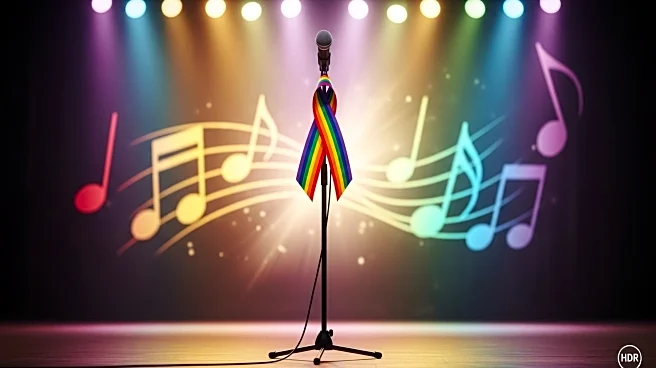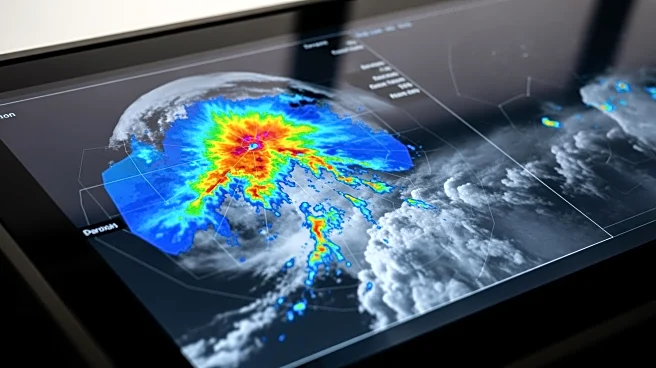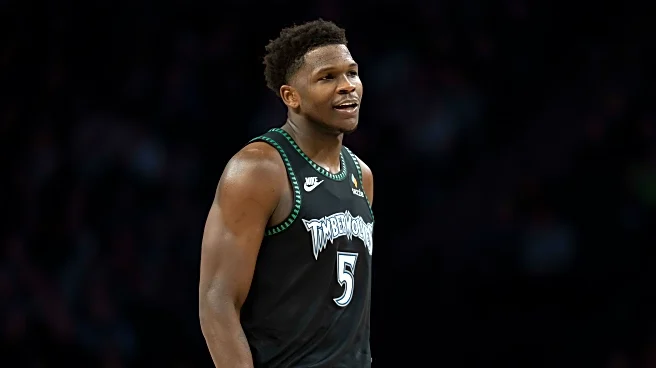What is the story about?
What's Happening?
Sabrina Carpenter used her debut performance of the song 'Tears' at the 2025 MTV Video Music Awards to advocate for transgender rights. The performance took place on an outdoor set resembling 1990s New York City streets, featuring drag queens and dancers in retro outfits. Carpenter and the performers carried picket signs promoting trans rights, with messages such as 'Protect Trans Rights' and 'In Trans We Trust.' Carpenter was nominated for nine awards, including best pop artist and album of the year for 'Short 'n Sweet.' Her lead single 'Manchild' was nominated for several categories, including video of the year and song of the summer.
Why It's Important?
Carpenter's performance highlights the ongoing advocacy for transgender rights within the entertainment industry. By using a high-profile platform like the MTV VMAs, Carpenter brings attention to social issues affecting the transgender community. This advocacy can influence public opinion and encourage support for trans rights, potentially impacting policy discussions and societal attitudes. Carpenter's nominations and performance also underscore her influence in the music industry, where artists often use their visibility to champion causes they believe in.
What's Next?
The impact of Carpenter's performance may lead to increased dialogue around transgender rights in the entertainment industry and beyond. Stakeholders such as advocacy groups and policymakers might respond by amplifying their efforts to support trans rights. Additionally, Carpenter's continued success and visibility could inspire other artists to use their platforms for social advocacy. The MTV VMAs, as a significant cultural event, may continue to serve as a venue for artists to address important social issues.
Beyond the Headlines
Carpenter's advocacy at the VMAs reflects broader cultural shifts towards inclusivity and acceptance of diverse identities. The performance may contribute to long-term changes in how transgender rights are perceived and supported in mainstream media. It also raises questions about the role of celebrities in social movements and the effectiveness of using entertainment platforms for advocacy.

















